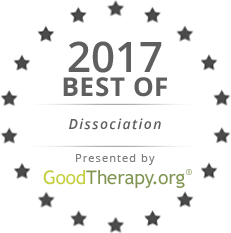 Dissociation describes a detachment from reality during which a person might hallucinate, daydream, or experience changes in their behavior or identity for a period of time. Individuals who dissociate may have memory loss or an “out-of-body” feeling during these episodes. Extreme dissociation can negatively impact a person’s life and daily function, and those who have dissociative experiences are urged to seek help to better understand their symptoms and learn about what is causing the dissociation.
Dissociation describes a detachment from reality during which a person might hallucinate, daydream, or experience changes in their behavior or identity for a period of time. Individuals who dissociate may have memory loss or an “out-of-body” feeling during these episodes. Extreme dissociation can negatively impact a person’s life and daily function, and those who have dissociative experiences are urged to seek help to better understand their symptoms and learn about what is causing the dissociation.
Though dissociation may co-occur with other mental health conditions, it has no single predictor. Because it is common for individuals with dissociation to have experienced trauma or posttraumatic stress (PTSD) at some point in their lives, it can often be associated with trauma. Others may experience anxiety, panic, or obsessions and compulsions (OCD) alongside dissociation.
As dissociation is often a method of coping with stress or trauma, therapists who treat dissociation aim to help people find alternative coping mechanisms that can help them feel empowered rather than removed in their personal lives. Seeking help from a trained mental health professional is strongly encouraged, but in the meantime, or even if you or a loved one are already pursuing therapy, GoodTherapy.org’s favorite dissociation websites and organizations of 2017 may also help provide guidance and support.
- International Society for the Study of Trauma and Dissociation: ISSTD is an international nonprofit that seeks to educate the world about trauma and dissociation. Visitors to the site can learn about dissociation through the “Resources for the Public” page, and interested mental health care professionals can access continuing education webinars.
- Sidran Institute: Sidran Institute is a 501(c)3 nonprofit that offers resources for people affected by dissociation. Its digital library contains a glossary and factsheets. People seeking more information can review the recommended reading list and access a database of programs that may be helpful. Health care practitioners can also access an extensive online learning course.
- TraumaDissociation.com: This website offers extensive information on dissociative issues, trauma, and coping mechanisms. Visitors to the site can also explore a list of self-assessment tools. A unique feature of this resource is the movie page, which rates movies on their portrayal of dissociative identity (DID).
- PODS: Positive Outcomes for Dissociative Survivors is a charity that promotes recovery from dissociative conditions and shares research and articles on dissociative identity. People with dissociation can access helplines, screening tools, and an online forum. The organization will be expanding its online training curriculum in January 2018.
- First Person Plural: First Person Plural has been helping people with dissociation concerns since 1997. The website provides educational factsheets and articles and also offers two training films in DVD or MP4 format. The site offers informational materials not only for those who experience DID but also for partners, family, and friends. Professionals can also book training courses through the site.
- DID Research: This website is dedicated to erasing the stigma of dissociative identity by correcting the rampant misinformation around the diagnosis. Its library has thoroughly sourced pages on every aspect of dissociative identity, from historical context to prevalence statistics.
- Mosaic Minds: Mosaic Minds, an internet hub for people with dissociative identity and their loved ones, offers many forums for emotional support and expression. The site also offers resources for independent learning and self-help strategies, a reading room with articles separated by topic, and a bookstore with further reading material on dissociation.
- Mind.org: Mind.org has a special page dedicated to dissociative conditions. The website contains educational information, self-care strategies, and advice for loved ones who wish to be supportive. For those who wish to connect to others through the site, Mind.org has an online community called Elefriends, where people going through similar challenges can support and encourage each other.


 Dissociative Identity: Understanding the Reality Behind the Myths
Dissociative Identity: Understanding the Reality Behind the Myths Dissociation and C-PTSD: The Role of Detachment in Complex Trauma
Dissociation and C-PTSD: The Role of Detachment in Complex Trauma Trauma and Dissociation: Beyond Your ‘Window of Tolerance’
Trauma and Dissociation: Beyond Your ‘Window of Tolerance’

Please fill out all required fields to submit your message.
Invalid Email Address.
Please confirm that you are human.
Leave a Comment
By commenting you acknowledge acceptance of GoodTherapy.org's Terms and Conditions of Use.